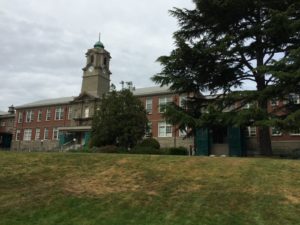In an effort to fix what it says are systemic issues plaguing British Columbia’s post-secondary institutions, the British Columbia Federation of Students (BCFS) has written an open letter to BC premier David Eby calling for urgent action.
On Tuesday, February 13, the BCFS, along with student unions and partner organizations across the province, released the letter, titled “We Can Do Better for Students: Our Vision for a Post-Secondary Education System that Delivers for Students and Communities in British Columbia,” addressed to Eby and the provincial government.
The open letter focuses on five core demands: for the government to cap international student tuition fee increases at two percent annually; to release a plan on how international study permits will be distributed to institutions in BC; to complete the Post-Secondary Funding Formula Review and determine gaps in government funding, in particular for regional colleges and universities; to develop a funding model that provides long-term financial stability for institutions, delivers quality education and services for students, and does not rely on student tuition fees as the main source of funding; and, lastly, to invest in BC’s public post-secondary institutions to ensure post-secondary education is affordable and accessible, and that the province is able to produce the skilled workers needed in the labour force.

BCFS secretary-treasurer Jessie Niikoi says that addressing these issues isn’t anything new, but with many problems being left unresolved and new ones being created, it’s essential to continue addressing them.
“The reason why we have this letter is another way of getting our message out there,” says Niikoi. “We’ve been making the calls, we’ve been advocating for these things for… over four years now. And the letter was one of the ways we wanted to address or just put it out there to the premier that this is what we need for post-secondary education and now is a crucial time to take some action on things.”
Niikoi says that the provincial government has long overlooked issues regarding funding and this has led to an over-reliance on international student tuition fees. She believes this creates an environment where “students are going to feel preyed on,” she says. Following the federal government’s recent announcement regarding its two-year international student permit cap, critics have brought up concerns surrounding financial issues. Niikoi says this issue isn’t unfamiliar.
“When COVID happened and the borders were closed and we were not receiving as many international students, there were some institutions that were facing major deficits,” says Niikoi. “And right now, since we have a cap on the numbers, or we’re going to have a cap on the numbers, that is also something that could occur again.”
Camosun College Student Society (CCSS) external executive Jagjeet Singh says that there’s a significant lack of funding that needs to be addressed and resolved by the provincial government as soon as possible.
Since the BC government decoupled post-secondary funding from inflation in the early 2000s, institutions have had substantially less funding. At the time, funding was at 80 percent to 90 percent, which has since dropped to an average between 30 percent and 40 percent today.
“So that’s been a deficit that the government itself has created over the years because year by year the funding never increased,” says Singh. “But everything got more expensive and so did the operational cost for the institution.”
Singh says that international students disproportionately suffer from these systemic obstacles. He says the issue lies with the lack of financial support from the BC government and says that “most of the time it’s because of the limited resources that our institutions have.”
Niikoi says that students are the ones funding their education, which shouldn’t be the case for a system that is public.
“[If the] post-secondary education sector is called a public post-secondary education sector, it means it has to be publicly funded,” she says.
The BCFS is looking to see Eby and the government take the first steps to fund a larger percentage of post-secondary students’ tuition.
“I think one of the things we want to, we’re expecting, is at least for the government to start taking more steps in actually addressing the issue of post-secondary education funding,” says Niikoi. “We want the funding review completed so that we can identify, or the government can identify, the gaps in funding that is happening with the post-secondary education sector and then fund that sector. Because that’s one of the basic things that’s causing all of these issues.”
Singh realizes how this impacts students currently living with economic adversity.
“They struggle a lot,” he says. “There’s food insecurity, which, obviously, because tuitions are so high at times, students have to choose between that and food, and I’ve seen that happen more than once.”
But the BCFS and CCSS see the potential in action from Eby and hope that he takes the right steps to ensure stability, and a lighter financial burden, for post-secondary students.
“The students, hopefully, will have better services when they come here,” says Singh, “and better supports, which they need.”
